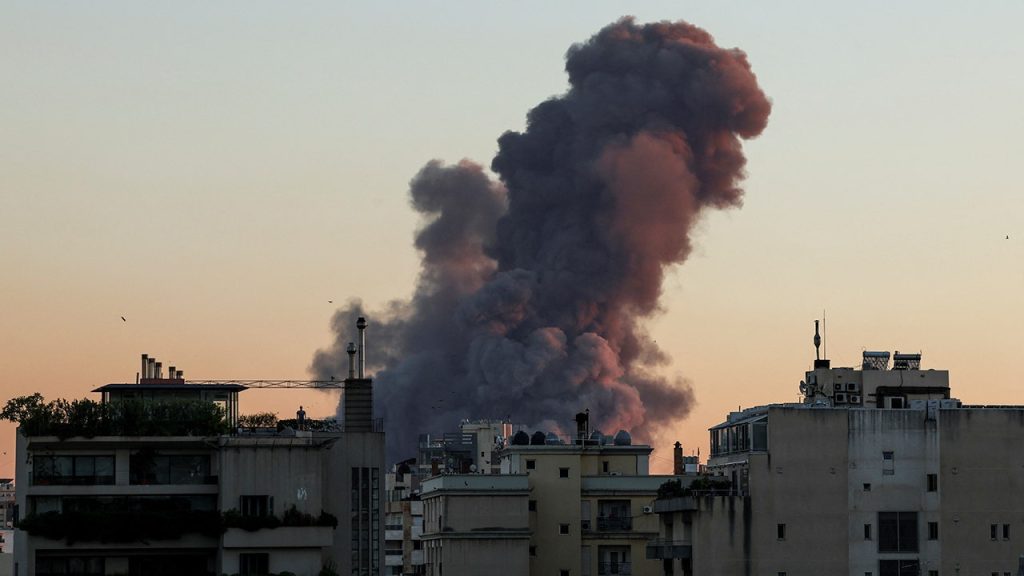The Israeli Defense Forces targeted Hezbollah leader Hassan Nasrallah in a “precise strike” on the central headquarters of Hezbollah in Beirut, Lebanon, intentionally built under residential buildings to use civilians as human shields. At least two people were killed and dozens were wounded in the attack. The IDF airstrikes marked an escalation of Israel’s conflict with the heavily armed, Iran-backed Hezbollah, targeting an area where top Hezbollah officials are usually based. This attack was the heaviest in Beirut in almost a year of conflict between the two parties. Hezbollah media relations reported that Nasrallah was unharmed as he was not at the location during the strikes.
Israeli Defense Forces spokesperson Rear admiral Daniel Hagari stated that Hezbollah had been attacking Israel for almost a year, prompting Israel to take necessary action to protect its people. The U.S. was not involved in the operation and had no advance warning, according to Deputy Pentagon Press Secretary Sabrina Singh. President Biden has been briefed on the operation, which occurred shortly after Israeli Prime Minister Benjamin Netanyahu vowed to continue Israel’s attacks on Iranian-backed fighters in Lebanon. Netanyahu is cutting short his stay in the U.S. to return to Israel, an unusual move as Shabbat is a day of rest for Jews.
The fighting between Israel and Hezbollah has escalated over the last month, with the IDF targeting Hezbollah’s hot spots and military storage units strategically embedded within civilian villages. The use of human shields by Hezbollah has raised concerns about civilian casualties in the ongoing conflict. The attacks come after Israel warned the world about Hezbollah’s activities and the threats they pose to Israeli civilians. The IDF’s actions have been aimed at protecting Israeli families and ensuring their safety and security amidst the conflict.
The Pentagon declined to speculate on whether Nasrallah was still alive after the strikes on Hezbollah’s headquarters. The U.S. had no involvement in the operation, and the events were still being assessed. The strikes in Beirut occurred shortly after Netanyahu’s speech at the United Nations, where he pledged to continue Israel’s attacks on Iranian-backed fighters in Lebanon. The lack of a cease-fire agreement has raised concerns about the potential for a full-scale regional war, prompting Israel to take proactive measures to address the ongoing threat posed by Hezbollah.
The Israeli strikes in Beirut targeted Hezbollah’s central headquarters, resulting in casualties and destruction of buildings in the area. The operation was conducted without the involvement or advance knowledge of the United States. The escalation of conflict between Israel and Hezbollah has led to increased tensions in the region, with both parties taking actions to protect their interests. Netanyahu’s decision to cut short his U.S. visit reflects the seriousness of the situation and the need to address the ongoing threats posed by Iranian-backed fighters in Lebanon. The IDF’s actions have been aimed at targeting Hezbollah’s military capabilities while minimizing civilian casualties in the region.


